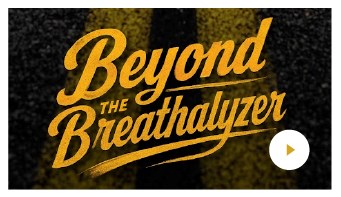8 Things That Can Go Wrong When the Police Draw Your Blood
Often, people who have been charged with DUI believe that the blood test result is infallible. There are many things that can impact a person’s blood test result. The following are just a few examples of things that can go wrong when the police draw your blood:
-
The officer may not be qualified to draw your blood.
In Arizona, police officers can be qualified phlebotomists. But not every officer can draw your blood. The Governor’s Office of Highway Safety sets requirements for officers, which includes an original training and refresher trainings every two years. The Behan Law Group has successfully fought for the dismissal of DUI charges when we proved that a police officer had been skipping these required refresher trainings but was still drawing blood for evidentiary use in a DUI case.
-
There can be contamination at the time of the draw.
The officer must clean the area of the draw and ensure that nothing touches the area once it is cleaned. There are specific ways the officer must clean the site of the draw and there are specific cleaners the officer must use. If the officer fails to follow any of these steps, it can affect the reliability of the result. The Behan Law Group closely monitors the videos taken by law enforcement for any issues with the blood draw and have seen officers draw blood with needles that were dropped on the floor.
-
The blood kit could be past its expiration date.
The blood kit contains two 10 ml tubes that contain both a preservative and anticoagulant powder in the tubes. Much like food, these tubes have expiration dates. We have seen, on more than one occasion, officers draw blood using expired tubes. Just like food past the expiration date, using tubes past the expiration date can affect the quality of sample.
-
The officer could fail to properly label and seal the tubes.
Once the officer draws your blood into the two tubes, it is essential that the officer properly label and seal the blood for testing. Failure to do so can result in swapped blood tubes, leaking blood tubes, or other issues that can affect the reliability of the test results.
-
The officer could fail to properly invert the tubes.
As mentioned, the tubes have powder inside. The officer must properly invert the tubes to mix the powder with the blood. If the officer fails to properly invert the tubes, your blood result can be affected.
-
The refrigerator could malfunction.
Blood samples must be refrigerated after collection and prior to testing. Just like food, failing to properly preserve the blood can lead to contamination. That is why the officers will take the blood samples to an evidence refrigerator for storage prior to blood testing. But the presence of the blood sample inside the refrigerator is not enough to ensure proper preservation. The attorneys at The Behan Law Group have seen refrigerators at two different Southern Arizona police agencies malfunction more than once. The blood samples were black, and the improper preservation led to the dismissal of Super Extreme DUI charges.
-
There could be issues with the chain of custody.
The State needs to be able to account for each person who had control over your blood sample, if they cannot, there are legal questions regarding the admissibility of the blood sample.
-
The blood could be improperly stored.
Blood must be preserved and stored in a refrigerator, as noted above. Assuming that the blood makes it to the refrigerator doesn’t ensure proper storage. There are times where the blood doesn’t get to the refrigerator for hours or even days, which can cause serious contamination. In Arizona, if officers are keeping your blood in their car, it could reach temperatures well over 100 degrees, significantly affecting the integrity of the sample.
The blood result is often the State’s key piece of evidence, but it is not infallible. If you are charged with a DUI, you need attorneys on your side who know how to defeat it. If you or a loved one are facing DUI charges, contact The Behan Law Group today at 520-220-5047.





